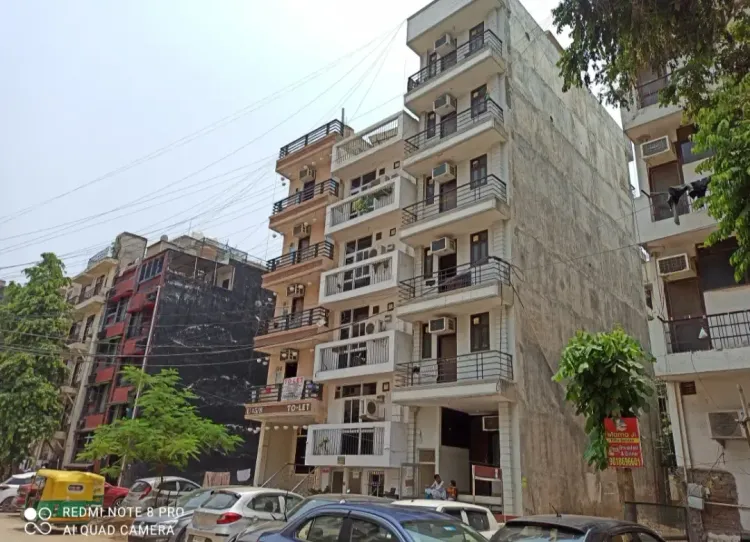Supreme Court Halts Demolition of Illegal Structures in Gurugram's DLF

Synopsis
Key Takeaways
- Supreme Court grants temporary stay on demolition orders.
- 2,100 DLF residents receive relief from High Court's directive.
- DTCP set to enforce actions against illegal constructions.
- Concerns raised over illegal commercial activities.
- Further legal proceedings anticipated in Supreme Court.
Gurugram/New Delhi, April 4 (NationPress) In a significant reprieve for 2,100 DLF residents, the Supreme Court on Friday issued a temporary stay on the directive from the Punjab and Haryana High Court that required the demolition of unauthorized constructions within residential areas and the sealing of commercial operations across DLF Phases 1 to 5.
This temporary relief lasts for a period of 4 weeks for the residents who sought intervention from the apex court.
The stay coincided with an impending initiative by the Department of Town and Country Planning (DTCP) aimed at enforcing the High Court's order regarding illegal constructions.
TCP Enforcement Officer, Amit Madholia, remarked, "We were prepared to act on the High Court's order but learned about the Supreme Court's stay. We need to review the Supreme Court's ruling further."
Residents expressed their satisfaction with the Supreme Court's ruling, with Satish Yadav, a local resident stating, "We appreciate the Supreme Court's decision. We are the affected parties here. This land is not government property; we own it and pay all relevant taxes. Our appeal was heard by the court, and it has responded favorably."
The High Court's ruling was initiated by a petition from Sameer Puri, President of the DLF Phase 3 Resident Welfare Association (RWA).
In response to the Supreme Court's stay, Puri commented, "The High Court had decided in our favor, and now the Supreme Court has issued a stay. We plan to pursue this matter further in the Supreme Court to present our arguments."
The High Court's directive was issued on February 13, following which a survey by the enforcement team identified over 4,200 properties that were in breach of building regulations.
The court's orders incited concern, particularly among residents in the economically weaker section (EWS) blocks of DLF 3's U-Block, as well as builders and local inhabitants. Out of the 4,200 properties identified by the DTCP, 2,100 units were slated for demolition and sealing, with actions expected to commence on April 4 under the High Court's directives. Prior to this, property owners received show-cause notices and were allotted seven days to respond. Those failing to provide adequate explanations faced stringent actions under the Haryana Urban Development Act and Haryana Building Code regulations.
The DTCP's enforcement team had devised a plan targeting illegal constructions and unauthorized commercial activities. Four teams were organized, and duty magistrates were appointed for oversight. A significant police force was also deployed to ensure order during the operation.
Commercial activities have thrived in these 60-square-yard residences for several years, with many homeowners leasing space for shops, paying guest accommodations, and guesthouses. The violations in U-Block have been particularly egregious, with some buildings illegally extended to six or eight floors, exceeding permissible limits. However, due to the High Court’s directive and the impending crackdown, these operations have ceased.
Authorities have cautioned that any tampering with the sealing process would result in legal consequences, including FIRs.
The DLF City Resident Welfare Association had previously filed a public interest litigation in the Punjab and Haryana High Court in 2021 concerning illegal constructions across various sectors of DLF Phases 1 to 5. The petitioners argued that such illegal constructions had degraded the quality of life in the area and urged the court to mandate the demolition of these structures. They also called for the annulment of illegally issued occupation certificates.







